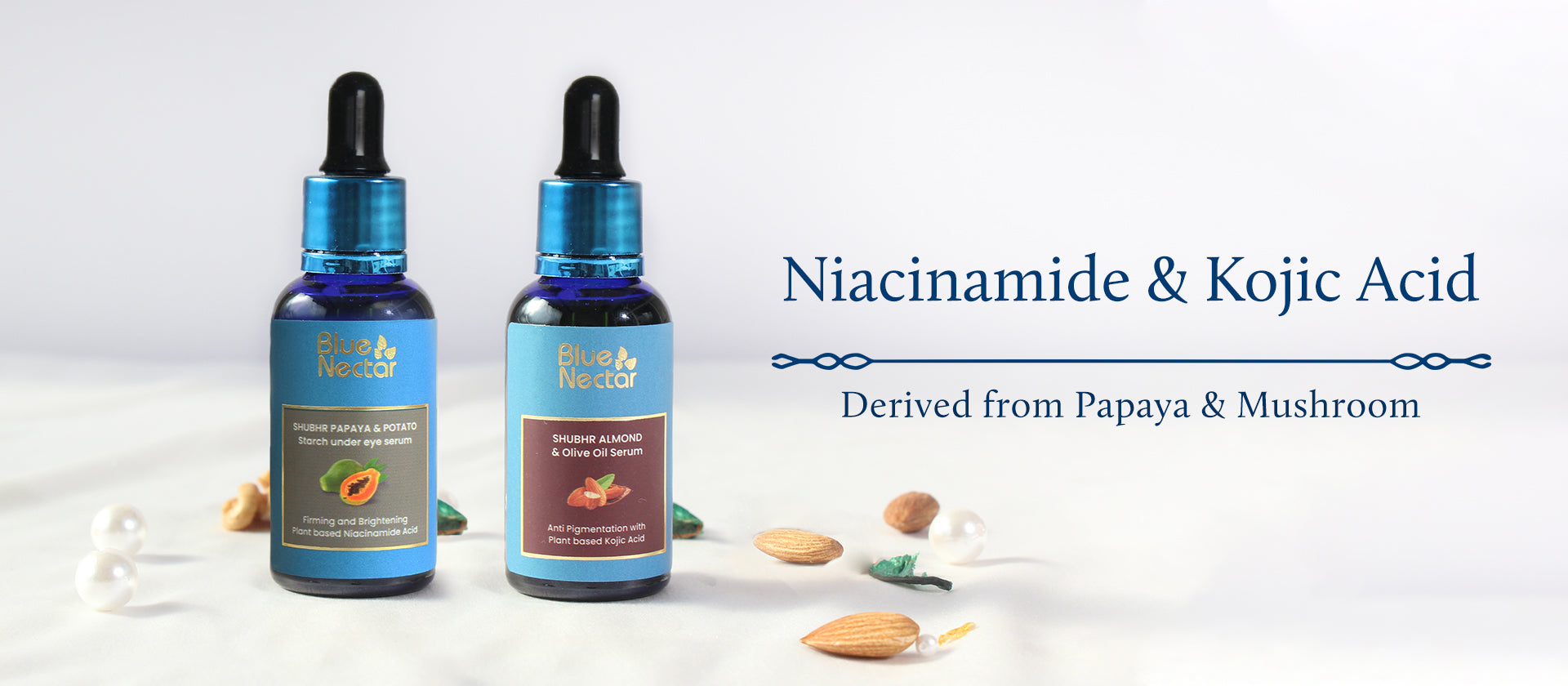1. How does Ayurveda play a role in skincare formulations?
Ayurveda is an ancient system of holistic healing that originated in India. It emphasizes the balance of mind, body, and spirit to achieve overall health and well-being. In skincare, Ayurvedic principles are applied to create products that work in harmony with the body's natural processes. Ayurvedic skincare formulations often incorporate herbs, botanical extracts, and oils that are believed to promote healthy, radiant skin while addressing specific skin concerns.
2. What are plant-based actives, and how do they differ from other skincare ingredients?
Plant-based actives are concentrated extracts derived from plants that have specific skincare benefits. They are known for their natural properties that can address various skin concerns effectively. Unlike some synthetic ingredients, plant-based actives are often considered safer and more sustainable. For example, aloe vera can soothe sunburn, while saffron can brighten your skin. These Plant-based actives are a healthier choice for your skin compared to some other ingredients that are made in labs. So, when you use skincare products with plant-based actives, you're giving your skin the good stuff from nature.
3. What are plant-based ingredients in skincare, and why are they beneficial?
Plant-based ingredients are derived from botanical sources like herbs, fruits, and flowers. They offer numerous benefits for the skin, including hydration, nourishment, and antioxidant protection. They are also generally gentler on the skin compared to synthetic ingredients.
4. What are some common plant-based actives used in skincare products?
Some common plant-based actives include aloe vera, Red banana, Potato starch, green tea extract, saffron, sandalwood, manjistha, rosemary oil, rosehip oil, and jojoba oil, all known for their moisturizing, soothing, and anti-inflammatory properties.
5. What is niacinamide, and what does it do for the skin?
Niacinamide, also known as vitamin B3, is a potent skincare ingredient that offers a wide range of benefits. It helps to improve skin texture, reduce the appearance of pores, diminish fine lines and wrinkles, and even out skin tone. Additionally, niacinamide has anti-inflammatory properties that can soothe and calm irritated skin.
6. What makes Niacinamide sourced from Papaya and Potato starch special?
Niacinamide from Papaya is a unique ingredient known for its skin-brightening properties, targeting dark circles and fine lines for a radiant under-eye area.
7. How does the Niacinamide Under Eye Serum help with dark circles and puffiness?
The powerful combination of Niacinamide and Ayurvedic herbs targets dark circles and puffiness, helping to reduce their appearance over time with consistent use.
8. Can Niacinamide Under Eye Serum be used during the day under makeup?
Yes, the lightweight formula of the Niacinamide Under Eye Serum makes it ideal for use under makeup. Allow it to absorb fully before applying makeup for best results.
9. Can I use Niacinamide Under Eye Serum along with my regular skincare routine?
Absolutely! The lightweight, non-greasy formula seamlessly integrates into your skincare routine, making it easy to incorporate into your daily regimen.
10. Is there a recommended application method for the Niacinamide Under Eye Serum ?
Apply a small amount to the under-eye area, gently patting and smoothing it in for the best results. Enjoy the pleasant woody sandalwood aroma during application.
11. What is kojic acid, and how does it work in skincare?
Kojic acid is a natural skin-lightening agent derived from certain fungi. It works by inhibiting melanin production, making it effective in reducing the appearance of dark spots, hyperpigmentation, and uneven skin tone.
12. How does kojic acid contribute to skincare formulations?
Kojic acid is a natural ingredient derived from fungi and certain types of mushrooms. It is known for its skin-brightening properties and its ability to reduce the appearance of dark spots, hyperpigmentation, and uneven skin tone. Kojic acid works by inhibiting the production of melanin in the skin, resulting in a more even complexion.
13. What is the source of Kojic Acid in Blue Nectar dark spot serum?
Rice Water and Mushroom contains Kojic Acid and helps in reducing skin pigmentation and brightening the complexion
14. Is Blue Nectar's Kojic Acid Face Serum suitable for all skin types?
Yes, absolutely! Whether you have oily, dry, combination, or sensitive skin, this serum is formulated to be gentle yet effective for all skin types, ensuring everyone can benefit from its skin-brightening properties.
15. Can both men and women use Blue Nectar's Plant-Based Kojic Acid Face Serum?
Yes, this serum is designed for everyone! Regardless of gender, anyone looking to address dark spots, uneven skin tone, and pigmentation can incorporate this serum into their skincare routine for visible results.
16. How long does it take to see results with Plant-Based Kojic Acid face serum?
Results may vary depending on individual skin types and concerns. However, with consistent use, most people start noticing improvements in their skin's tone and texture within a few weeks. For optimal results, it's essential to use the serum as directed and maintain a regular skincare routine.






















